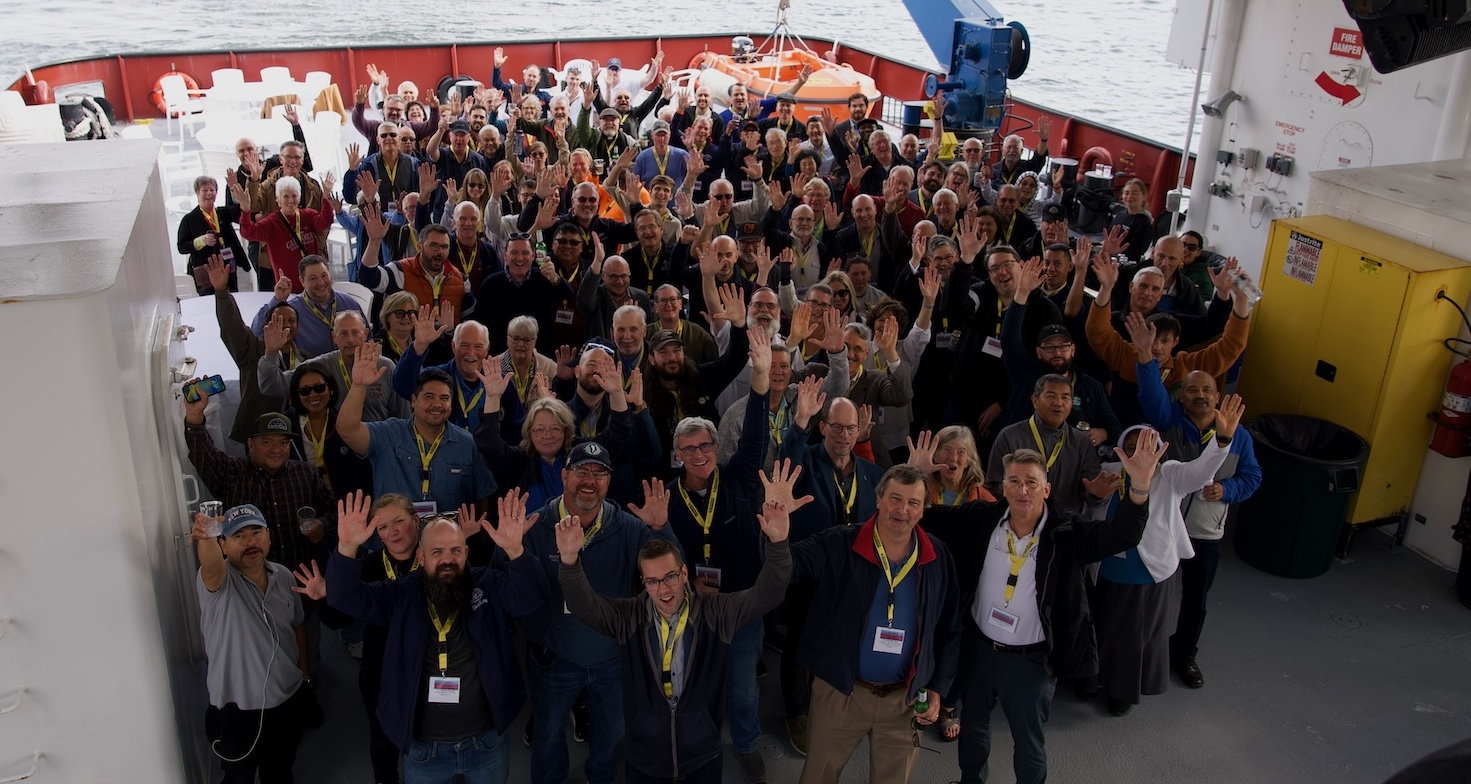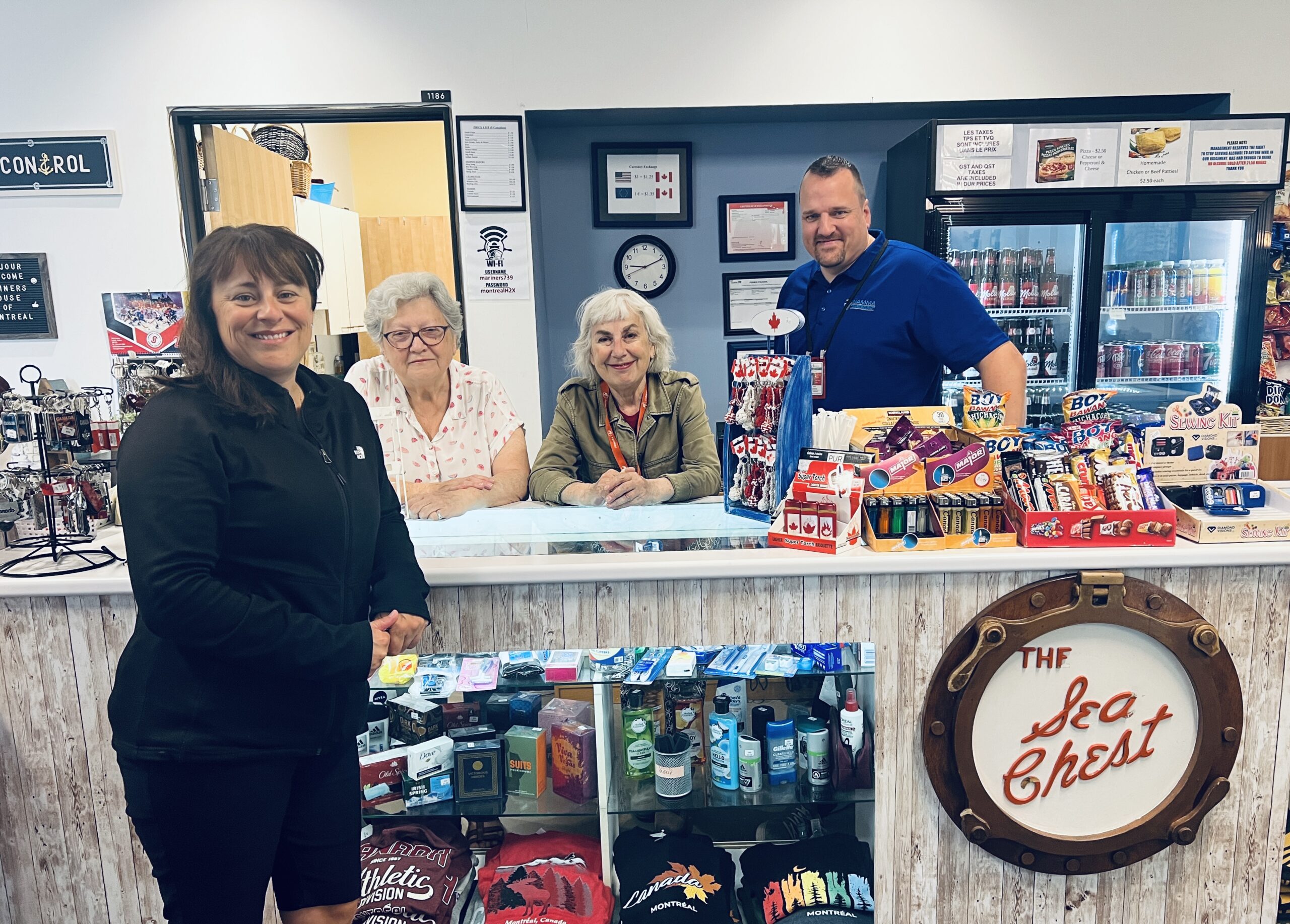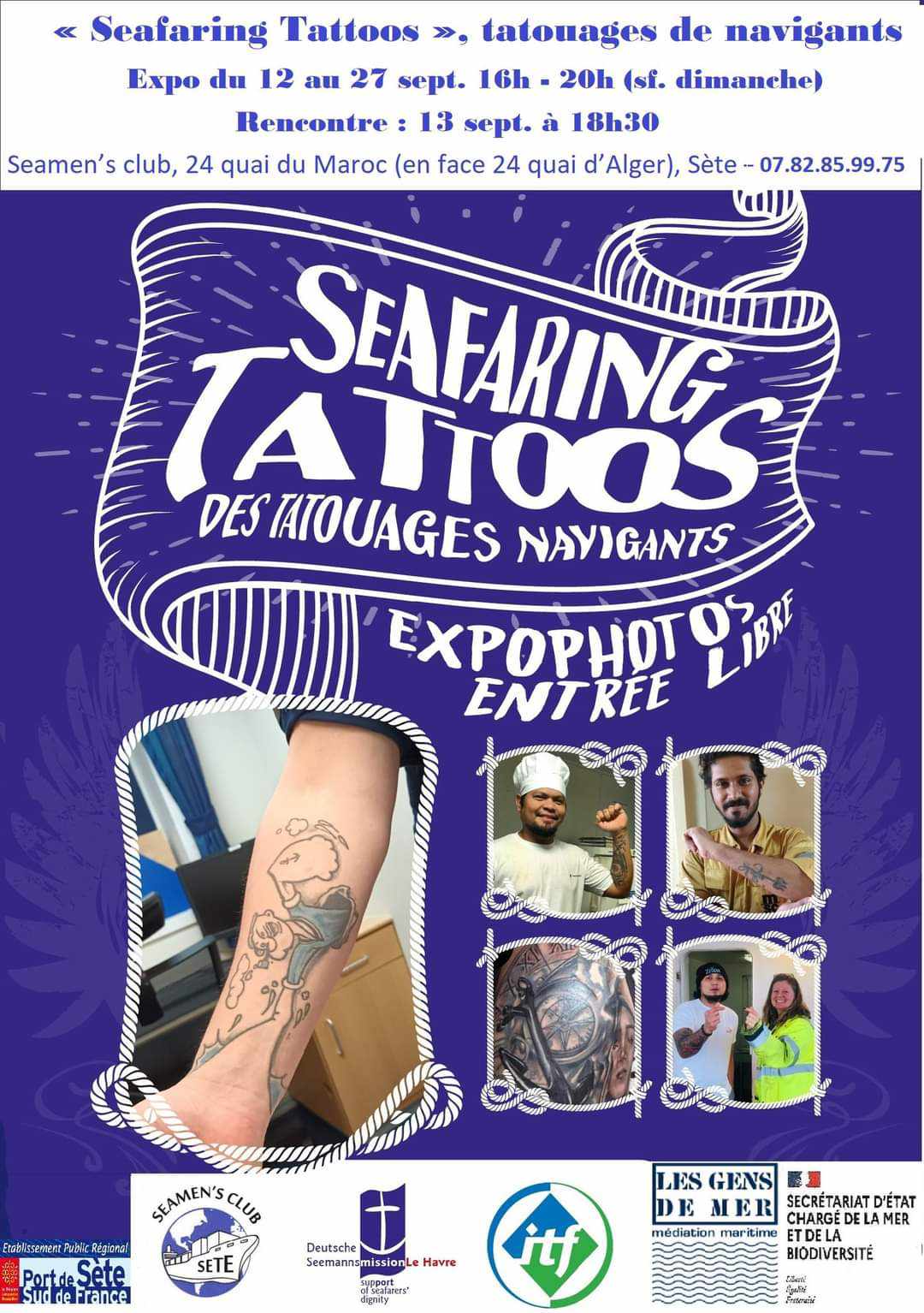by Kevin Walker, NAMMA
ICMA’s 11th World Conference was held over the week of 21-25 October in the Taiwanese port city of Kaohsiung, hosted by the Presbyterian Church in Taiwan’s Seafarers’ and Fishers’ Service Center (PCT SFSC). By all accounts a great success, the conference gave us an opportunity to celebrate ICMA’s 50th anniversary; strengthen our work together for seafarers, fishers, and their families; get to know our Taiwanese colleagues and their ministry to the Taiwanese fishing fleet better; and of course talk and worship together.
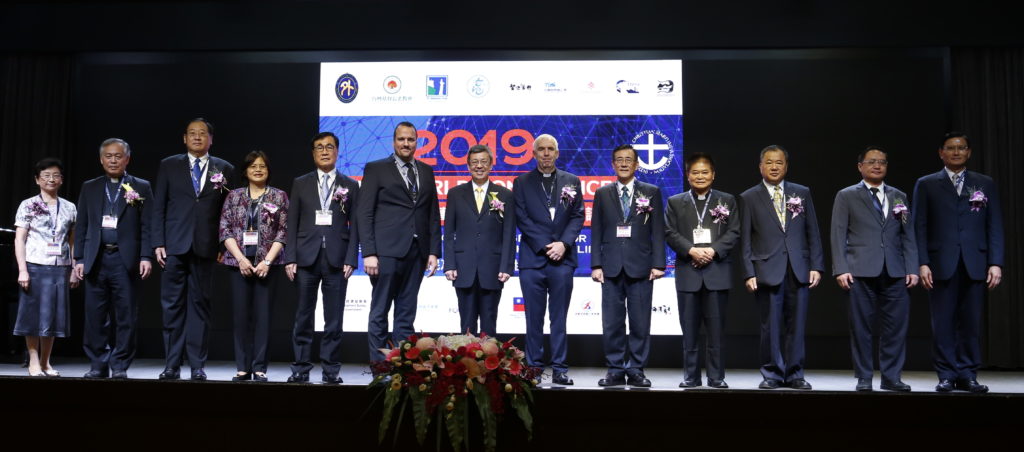
50 years of working together
ICMA was founded in 1969 by the organizations now known as NAMMA, the World Council of Churches, the Apostleship of the Sea, the Sailors’ Society, the Mission to Seafarers, the Deutsche Seemannsmission, the Dutch Zeevarendencentrale, and the Nordic Council, and since then has added many new members and held eleven plenary conferences all over the world. With this in mind, it was natural that we spend a fair bit of time celebrating. On day one, we launched Paul Mooney’s book The History of ICMA, watched a video on our history, and had a presentation by General Secretary Jason Zuidema about our mission, vision, and future. On the final night we celebrated in a slightly more raucous fashion: a multi-decker cake, dancing dragons, and an indigenous Formosan dance line with audience participation, to name just a few of the festivities. For this 50th anniversary we were lucky to have many ICMA veterans, but we are equally lucky to have many, many first-timers – hopefully portending a vibrant ICMA to come.
Accomplishments worth celebrating
This conference saw ICMA members make new partnerships with ministries that share their region or work, learn best practices from each other, discuss the welfare of seafarers and fishers with the governments and commercial and labour organizations responsible for them, and establish a new focus on the oft-underserved area of fishers’ welfare. Even as we have much to already be thankful for and maritime industries continue to transform, ICMA and its individual members have been well-equipped by this conference to more effectively advance the welfare of our seafaring and fishing neighbours and to more dearly love them as ourselves.
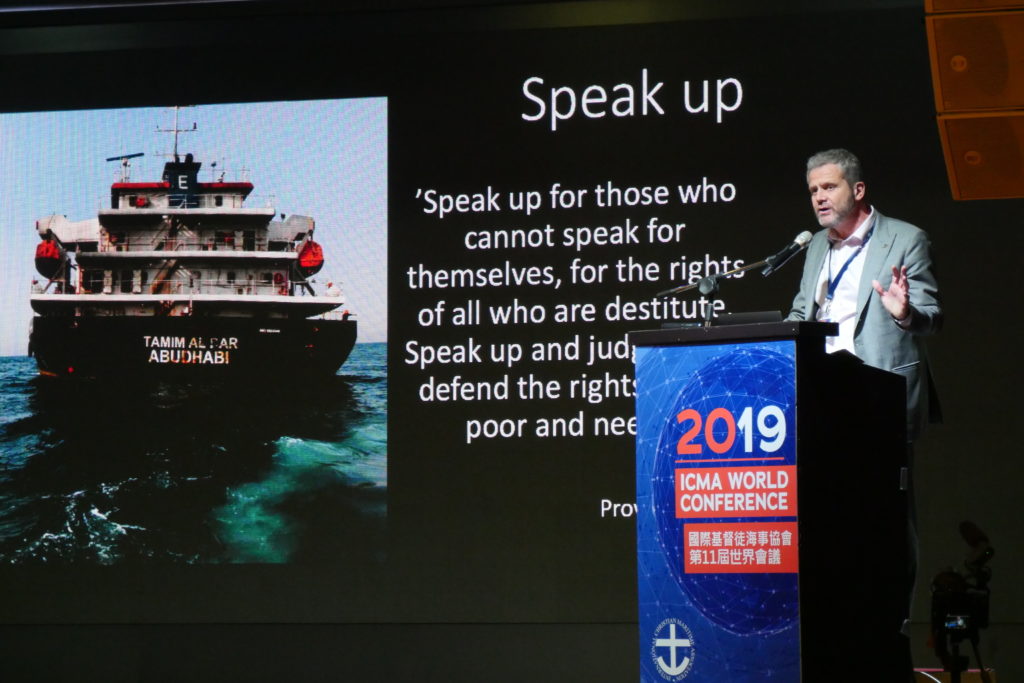
The structure of ICMA has now for many years included both international and regional associations – indeed, regional associations of seafarers’ ministries like NAMMA and the Nordic Council were some of the founding members of ICMA – and this international conference also made time for the members of each region to meet together. This was of particular value because in some regions the members had in large part lost contact with each other and new ministries had come up, so this was a new chance for ministries to exchange contact information and appoint a director to coordinate. Over the course of their meetings, the ICMA regions discussed their unique challenges, what they could offer the rest of ICMA, and their priorities for allocating resources. Besides this, there were of course the informal times of conversation where colleagues from the same region got to know each other as friends. Ministries working closely together within a region is one of the most important kinds of collaboration that ICMA can foster, since they are more likely to deal with the same vessels and issues, and the priorities that regions set are likewise important for deciding the direction ICMA takes as an international body.
A fair bit of the conference’s formal programming was dedicated to professional development and the nuts and bolts of maritime ministry. Presentations like Gavin Lim’s on the Sailors’ Society’s Wellness at Sea program, Deacon Ricardo Rodrigues-Martos’ on port communities, and Dr Nelson Turgo’s on how seafarers practice religion on ships gave new tools and ways of thinking about our service and will hopefully prompt even more interesting discussions as time goes on. Smaller workshops were also held in which ICMA members presented to small groups based on their professional experiences in areas like cruise ship ministry, social media use, prayer, and active listening. The smaller group setting for these workshops meant more interaction and discussion, and attendees got to talk about the professional problems facing their ministries and work through them with their colleagues. It was also interesting to learn about the different approaches that others take to the same work.
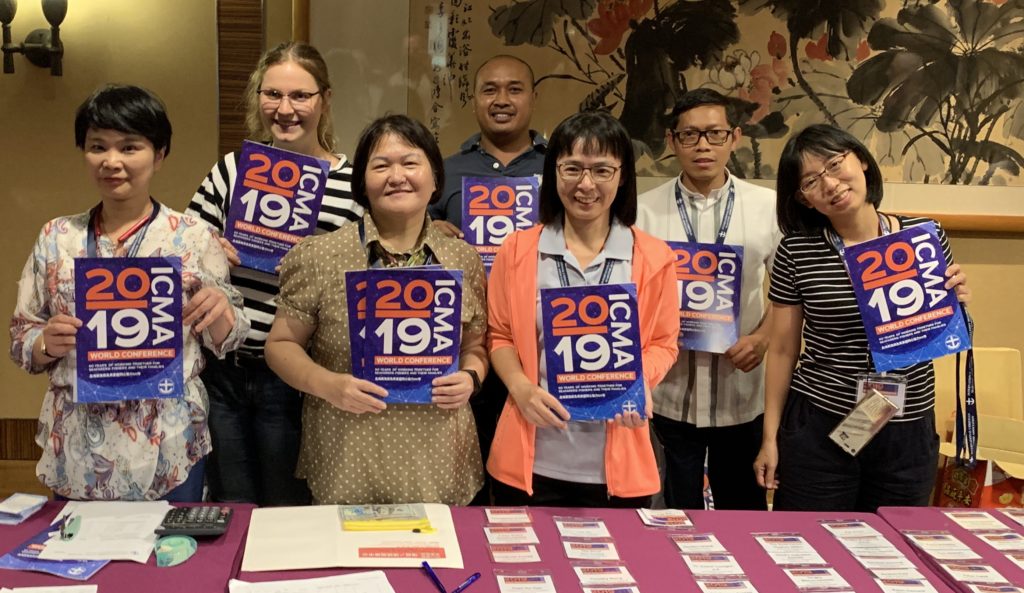
Presentations and question times with politicians and industry representatives connected with ICMA’s mission of sharing knowledge about the plight of seafarers and fishers and advocating for them. These interactions ranged from ceremonial meetings, like with the Vice President Chen Chien-jen of Taiwan and the Deputy Mayor of Kaohsiung, to exchanges of information and respectful challenges to do more. Prof. Dr. Max Johns of the Hamburg School of Business and Association of Shipowners and Capt. Hari Subramaniam presented about the financial challenges of the ship ownership and the working policies of P&I clubs, equipping maritime ministers to better understand the industry and advocate for seafarers within it. Su Yu-Kuo of the Ministry of Labour and Liu Chi-chao of the Fisheries Agency presented on the Taiwanese government’s accomplishments for fishers and the rights on which migrant fishers in Taiwan were able to draw, and they were in turn challenged by ICMA members and guests about the effectiveness of the measures taken and where they had fallen short. As members observed, advocacy is not always straightforward, but the more informed advocates we are and the better we know our partners the more progress can be made.
One final accomplishment of this conference to mention here is dedicating so much programming to ministry to fishers. Most of Thursday’s programming was dedicated to fishers, including information on their legal and medical situation and a conversation-style panel on the things maritime ministries and the ICMA network already do for fishers. Still more of our members involved in ministry to fishers participated in a workshop where the plight of fishers was discussed, contacts were made, and next steps proposed. ICMA members who work with the shipping industry also got to meet fishers and the conditions under which they often work firsthand at a visit to the Cianjhen fishing port and the PCT SFSC. Regrettably, ICMA as an organization is playing catch-up on fishers’ welfare issues, but we are lucky to have member organizations like the PCT SFSC, Biblia Ministries in South Africa, the International Lutheran Seafarers’ Mission in Singapore, many AOS ministries all over the world, and others leading the charge. While long-time fishers’ advocate Fr. Bruno Ciceri was unable to join us due to a recent medical procedure, this conference’s work for fishers is especially indebted to his outspoken care for fishers both at large and in ICMA itself.
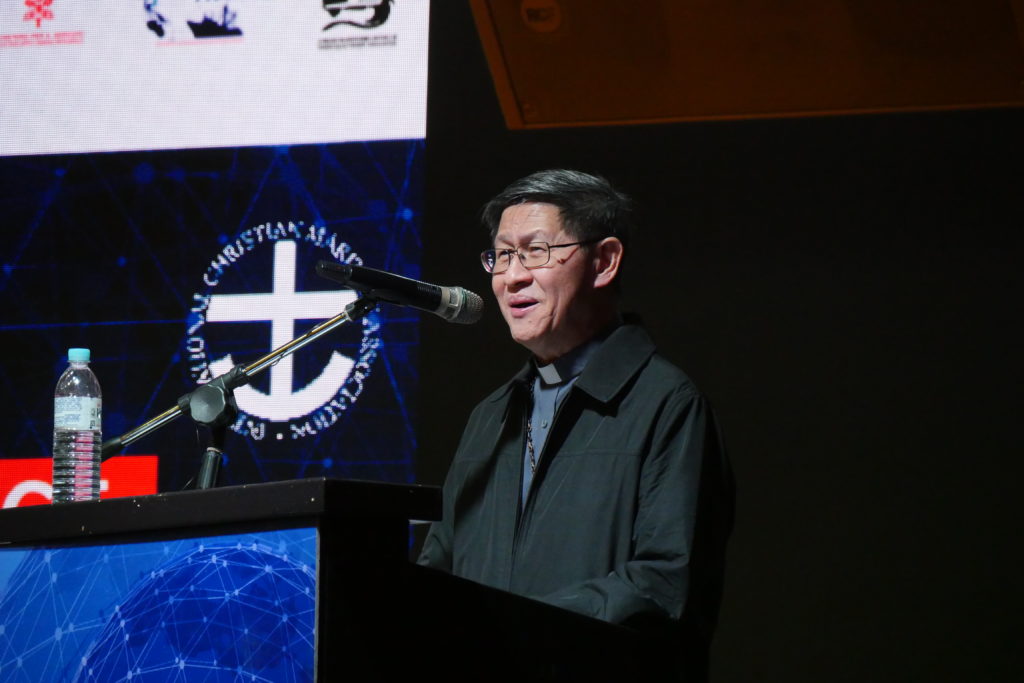
Many members, one body
Besides programming to strengthen our service to seafarers and our relationships with each other, the other great constant of the 2019 ICMA Conference was corporate worship. This included partnering with local churches – a nearby Presbyterian church and the Taipei glee club on the first day, the local cathedral for the closing event – and also many of our other members. These corporate acts of devotion are moving reminders of why we are together and what we have been called to do – His Eminence Luis Antonio Cardinal Tagle of the Philippines, president of Caritas International, said it well in his sermon on seafarers’ ministry and the example of the early Church: “In the Scriptures, we find this thread running through: God calling us to come together. And it is a coming together that associates us with God’s action of justice, caring, compassion, mercy, and love.” May we continue to come together and to be instruments of God’s justice and love for seafarers and fishers until the next world conference.


